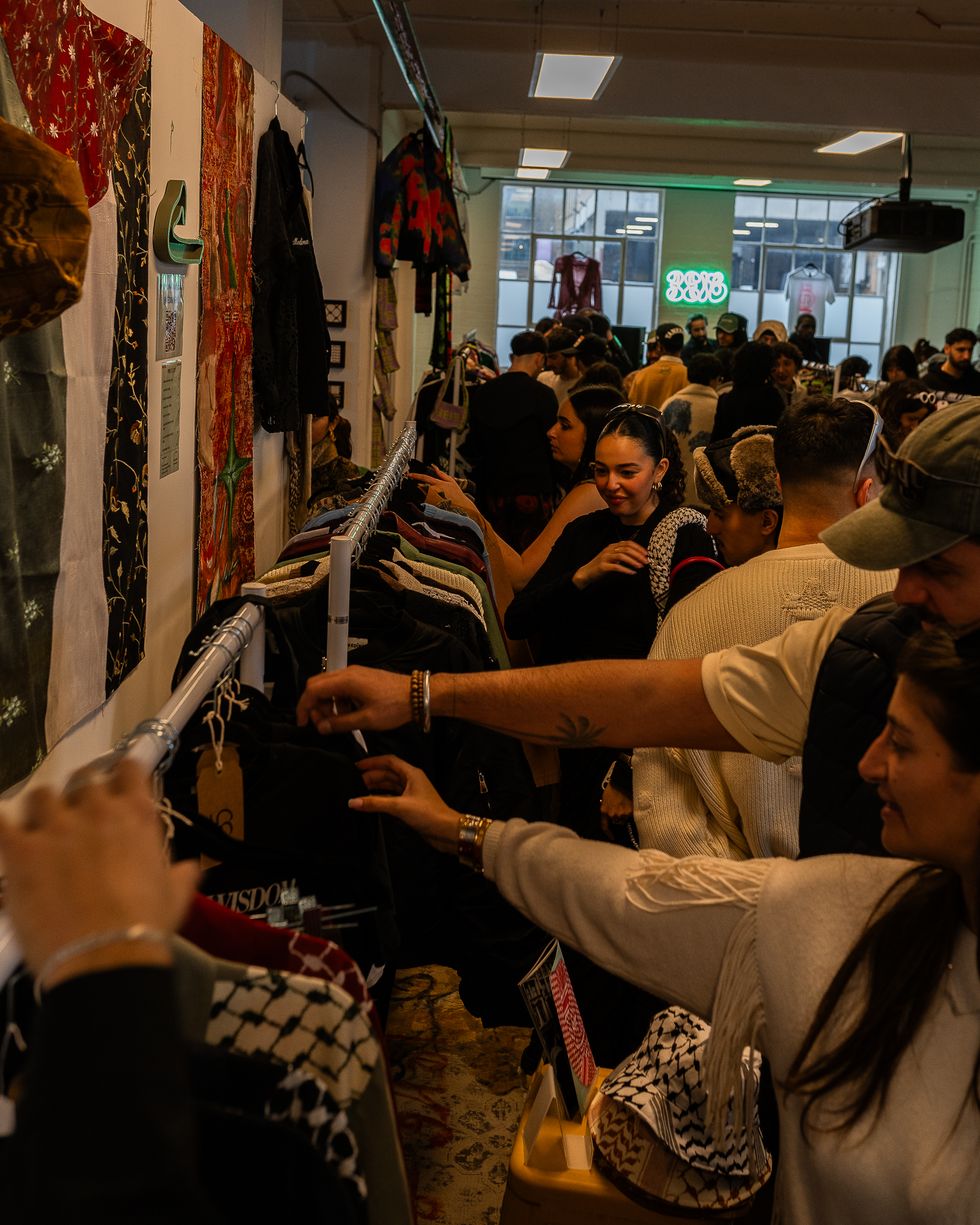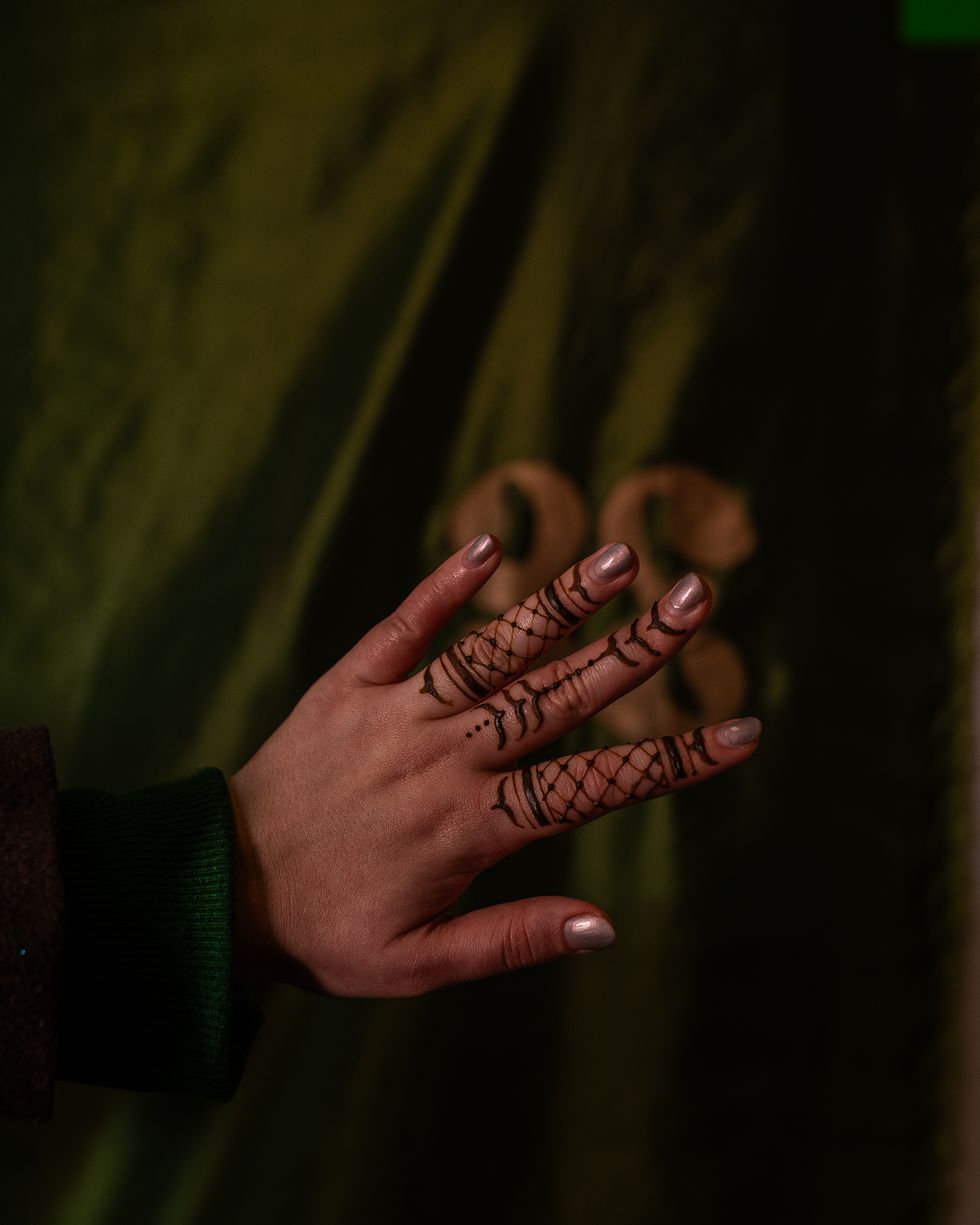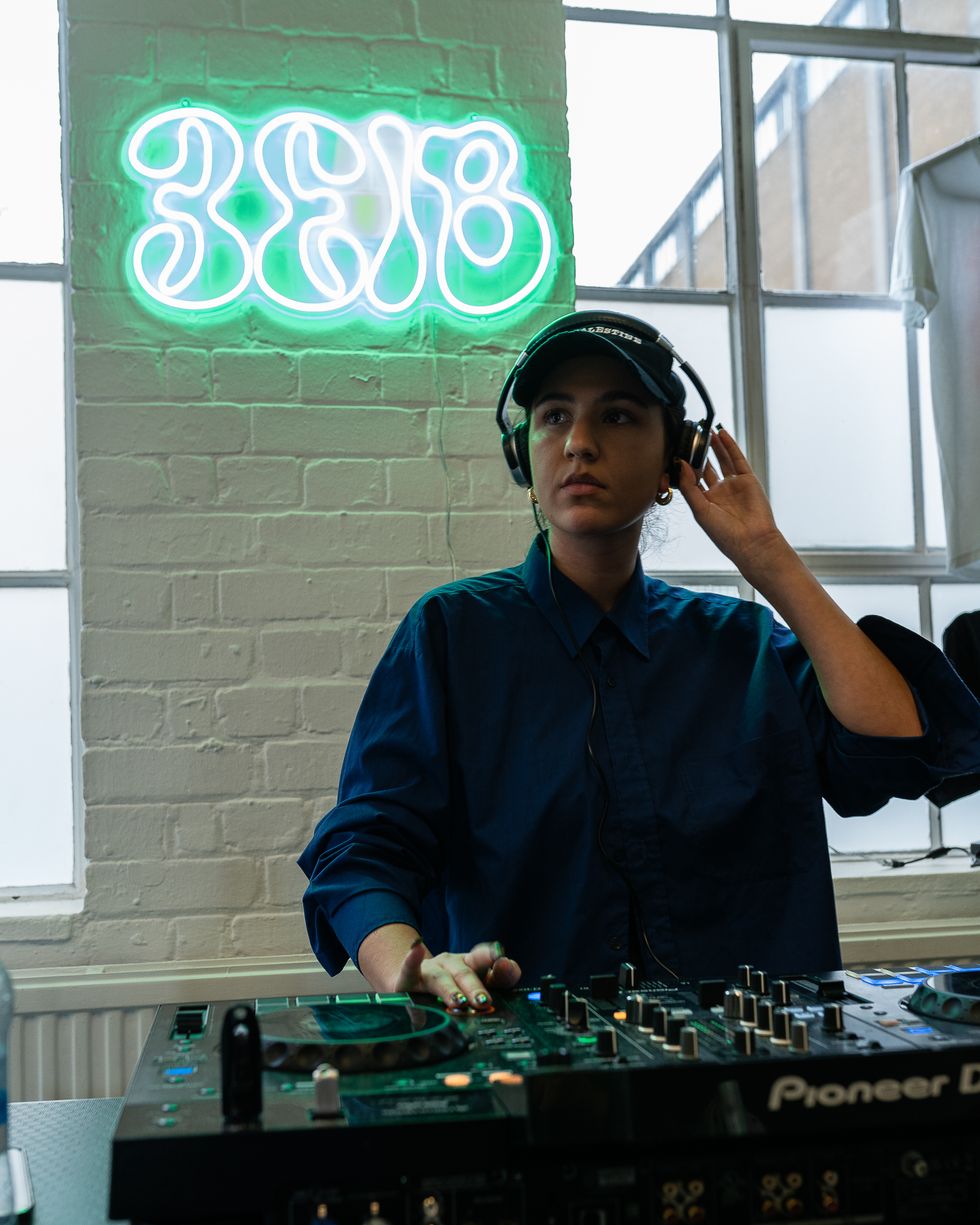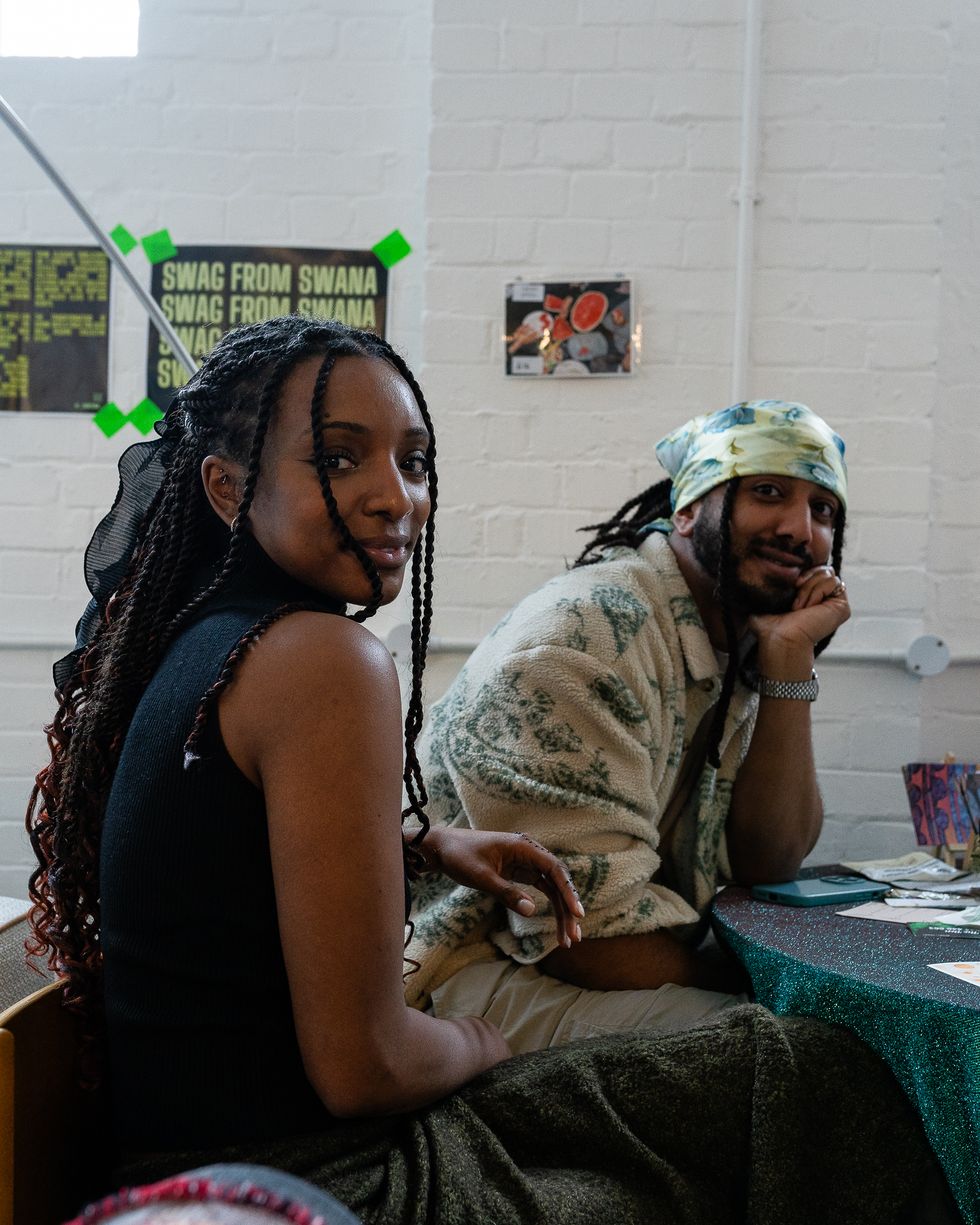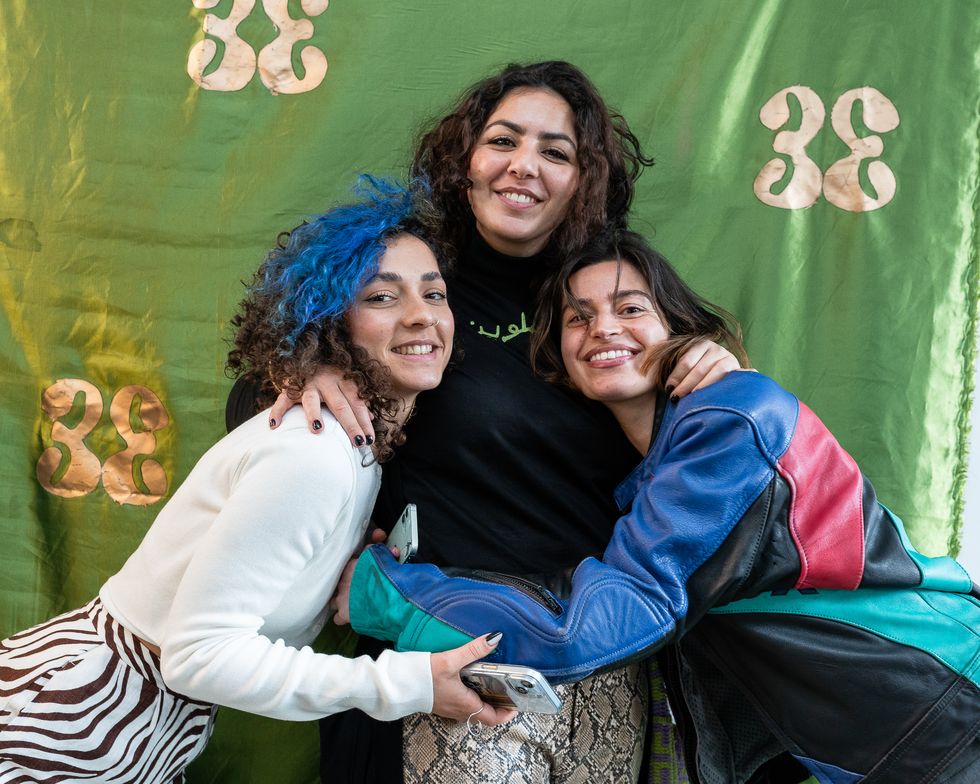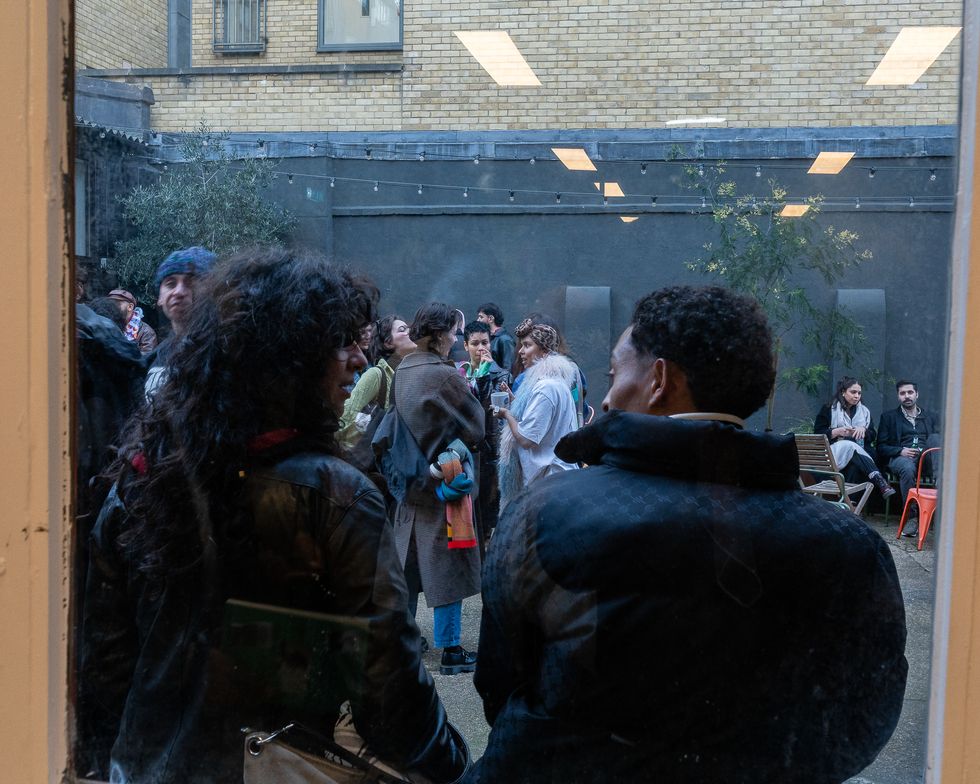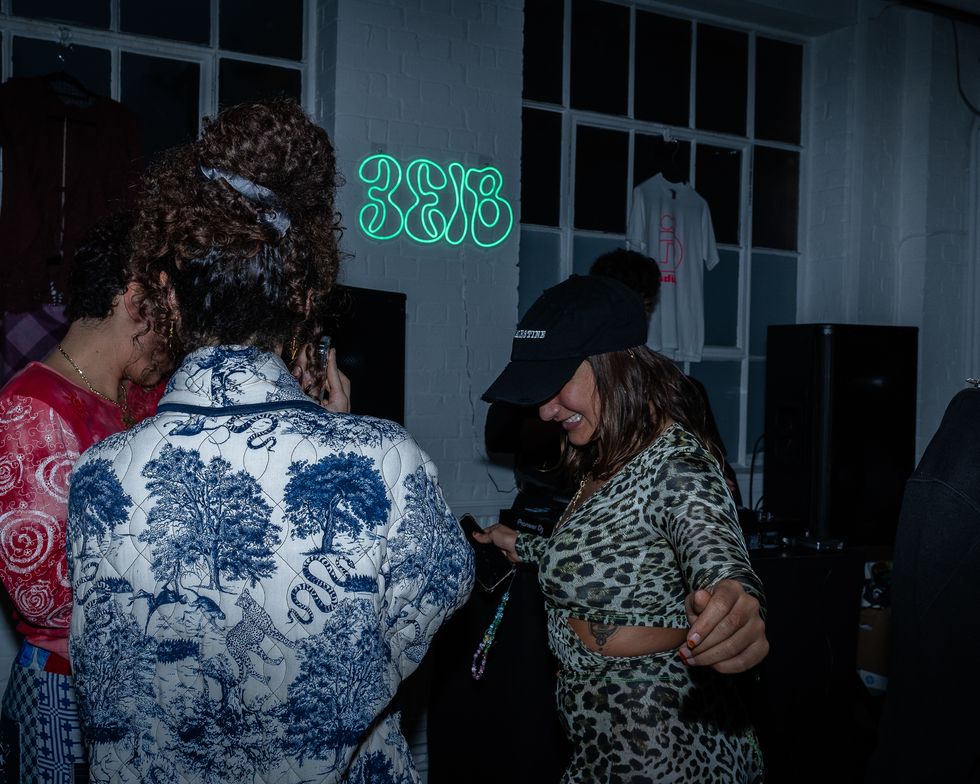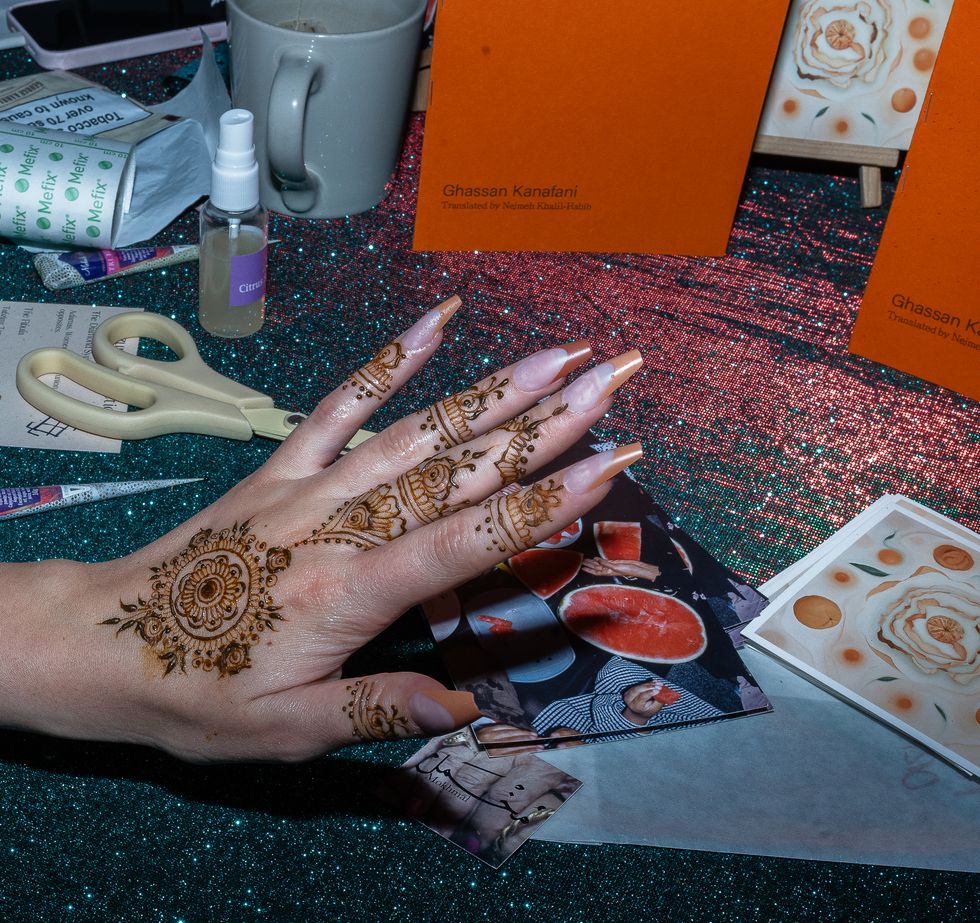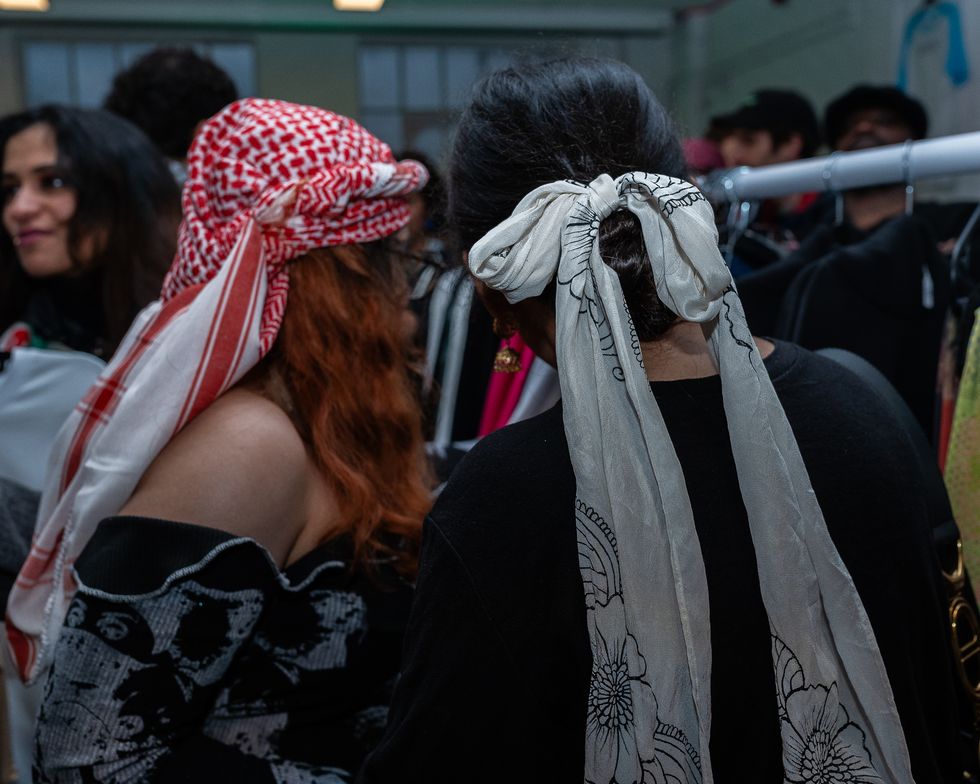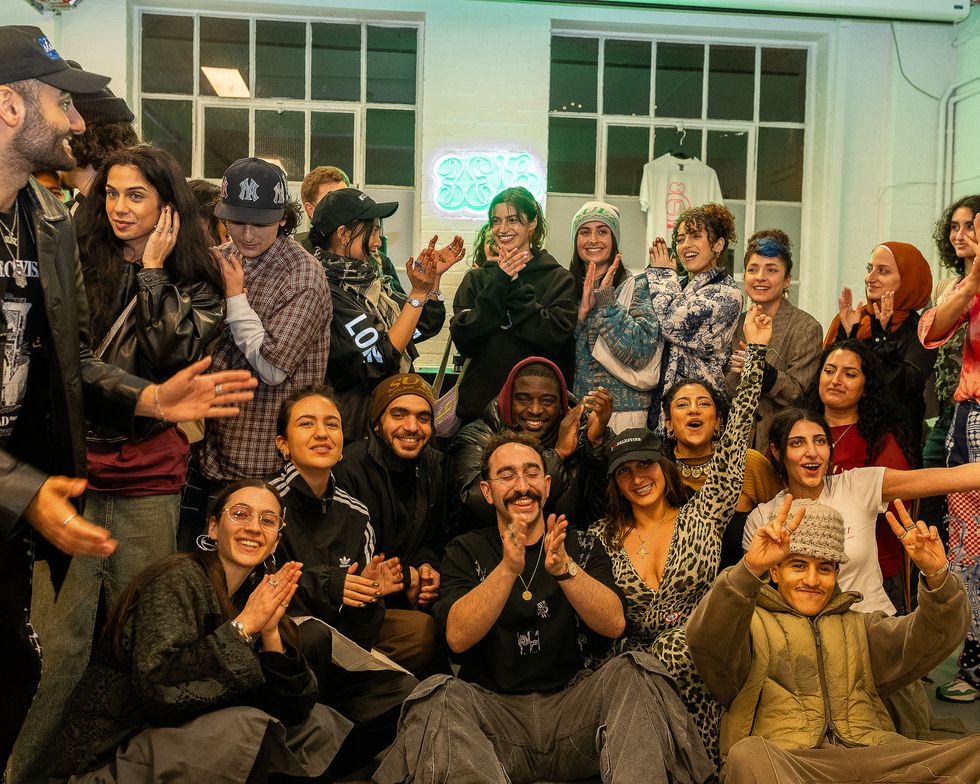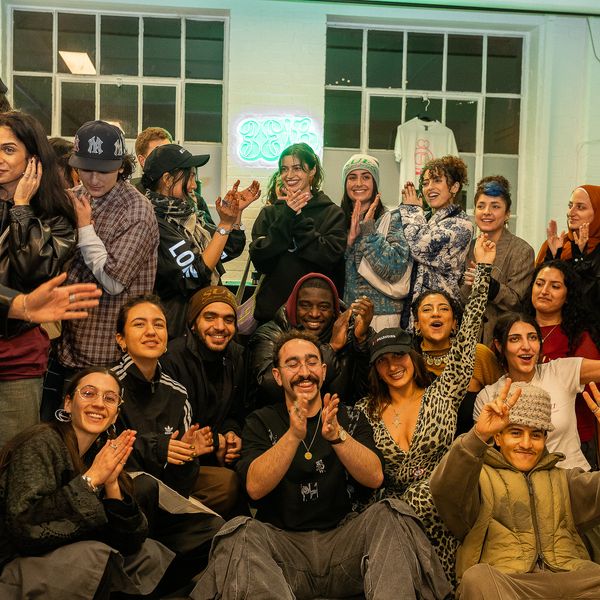
3EIB Is the SWANA Platform Taking Its Power Back
Story by Serene Madani
Jul 29, 2024
When Palestinian entrepreneur Dania Arafeh founded 3EIB one year ago, she sought to make one thing clear: the Arab community will no longer be victims of harmful language that has tirelessly been used to silence them.
3EIB, the community-led fashion platform and pop up series, was developed in 2022 with the intent of creating a safe space for SWANA (Southwest Asian and North African) creatives, all while elevating them in an unprecedented manner. The platform showcases the creative work of various designers from across the region and is the ultimate celebration of identity — a facet that has stood out in an otherwise homogeneous fashion industry.
“3eib'' or “shame on you” in Arabic, was chosen by Arafeh to be the name of the platform as a subversion of its original meaning. When one hears the word “3eib” they are expected to sit up straight and bite their tongue. However, through reclamation of this word, it has found new meaning, encouraging a community that once used to swallow their words to be unabashedly vocal about their beliefs, find power in creativity and to use those same convictions to push back against oppressive constructs. In reclamation, a community is now able to emerge out of fear to create something stronger.
Through emphasizing the importance of self-expression, authenticity and challenging conformity, 3EIB is reminding the world that they have a voice, and they aren’t afraid to use it. These principles are what the platform believes will create material change in the world and is emblematic of the prosperous future that lies ahead of them.
PAPER sat down and spoke with Arafeh on the origins of 3EIB, what it means to resist and what’s to come.
Congratulations on the success of 3EIB! Tell me the origin story. What made you want to start 3EIB, and why did you choose that word as the name of the platform?
3EIB was born out of the desire to build a community where I could see all the parts of me represented in one space. 3EIB or "عيب" means "shame" in Arabic, a word used to police people within our community who deviate from socially prescribed norms. We are reclaiming this word as a form of protest. We refuse to be the victims of language which serves systems of oppression that profits off our pain. We are owning our deviance and centering our joy. I believe in the political potential of pleasure and liberation being the antidote to shame.
You recently had your second London pop up. Tell me what that was like!
Incredible! I don’t think my heart’s ever felt so full. We showcased over 20 SWANA brands, half of them had never been exhibited in London and had flown in from all over: Palestine, Lebanon, Egypt, Morocco, Paris, Berlin, Brussels, Amsterdam. Everyone turned up. It was wild how many people there were, and because it was our second stint, I was able to enjoy the moment and make memories with friends and new faces. We had a sick lineup of DJs from the region throughout the day too; a lot of them doubled up as our designers. The feedback from everyone was amazing. It was a vibe.
Why do you feel it’s important to spotlight SWANA creatives?
The foundation of every injustice is the dehumanization of a people and the return on investment of their oppression. Through creating the opportunity for SWANA creatives to take up space within the existing cultural landscape, we are refuting the victim mentality and pushing the boundaries of representation.
Take a look at the genocide in Gaza; the world would not allow this to continue if people viewed Palestinians as humans of equal value to them. Dehumanization is achieved through the culmination of racialized stereotypes and tropes, weaponized through mainstream media and governments who are direct beneficiaries. Culture and politics have always been linked, and once I began noticing western brands appropriating our culture, slandering Arabic calligraphy and slogans on streetwear, it became clear that we needed to take back our power and be the voice for our own community.
Did you have any references or inspiration when you started 3EIB?
3EIB was conceived during my trip to Palestine in 2022, when I returned to my homeland for the first time since I was a baby. I spent three months there, traveling through checkpoints, cities and villages to connect with Palestinian creatives. The story began with the question: How can I, from my privileged position as in the diaspora, uplift voices from within Palestine?
Before that trip there were many years decolonizing my mind, redefining my identity and reclaiming my power. It probably began with Layla Shawa, a Palestinian artist from Gaza who gave me the courage to be loud. Nawal El Saadawi is a constant inspiration, particularly her writing on creativity and dissidence. Audre Lorde was central to building my decolonial approach. Bell Hooks and her centering of love, compassion and community. Tamara Al-Mashouk, a Palestinian artist and dear friend, showed me the power of bringing like minded people together and was the first person to give me the mic. And of course Sarah Bahbah’s photo series, "3eib," which are all over the walls of my flat.
How do you resist through fashion? Do you view art as a form of protest?
The purpose of contemporary art is to reflect the times, to provoke conversation and generate new narratives, with the ultimate aim of affecting a new world order. Fashion is intrinsically tied to systems of oppression, from the creative process, which in Western [industries] and fast fashion appropriates ideas from marginalized communities without accreditation or compensation, to the sourcing of materials, which is destructive to ecological and environmental systems, and of course to the creation of garments in inhumane conditions using sweatshops and slave labor. Most of the top streetwear brands like Puma are directly tied to the illegal Israeli occupation. As consumers, we can make a big difference. The BDS (Boycott, Divestment and Sanctions) movement does a great job at educating us on this.
While 3EIB aims to elevate creatives, it also emphasizes that fashion is only a secondary tool in the broader fight against oppressive structures. How do you use the platform to educate the community and mobilize action during tumultuous times?
By nature, we are political, but we are not activists. There are people and organizations wholly committed to educating and mobilizing communities like BDS and PSC (Palestine Solidarity Campaign) who we need to give that credit to. But we try to do our bit. For example, when the genocide in Gaza accelerated in October (one month after we launched), we paused 3EIB’s marketplace and popups for six months and shifted focus. One example is Arts Action Palestine: a day of panel discussions and lectures, workshops, films, performances and a library which we organized to spread awareness and mobilize action. We collaborated with 12 grassroots collectives and achieved tangible results like helping hundreds of attendees sign petitions and write letters to their MPs (Members of Parliament) calling for a ceasefire. As a diaspora, as a platform and as humans on this planet, we have a responsibility to speak up no matter what industry or medium we work in.
Operating a fashion platform that refuses to conform to conventional norms must have its challenges. What are some that you have faced?
We’ve had our fair share of haters. The biggest backlash was probably when Hypebeast Arabia posted a video of our launch party fashion show on their instagram and our DMs were flooded with people who took offense to our celebration of queer Arabs and the reclaiming of "3eib." But I saw it as proof that we were doing something worthwhile. There is a positive correlation between critique and potential impact, and I think if you don’t get some hate then you’re not pushing the boundaries enough.
The biggest challenge so far is definitely the financial side of things. We need to gain cultural capital in order to implement change, but self-fulfilling profit is really difficult to achieve without exploitation somewhere down the line. Funding is the only viable option, but I want to be conscious about how I grow the business. I’ve seen company values and missions quickly dissolve into the shackles tied to investors and board members so there’s definitely risk involved. We’re also living in a recession so there’s a lot less going around.
I really love that 3EIB seeks to unite the diaspora. Why do you feel that community building is important now more than ever?
Community building is the only way forward. It’s the antidote to the individualism and oppression of the colonial/capitalist systems that were built in the name of white heteronormative supremacy. It’s the only way we can reclaim our power, be seen, safe and understood and emerge into the world empowered and as catalysts for change.
We don’t just seek to unite the diaspora, but also bridge a connection between the diaspora and those still rooted in their homeland, which is reflected in the ratio of brands we work with. This way, we can unite a global network of creatives under one mission and vision. Beyond that, we believe in intersectionality, and although we center the SWANA region in our curation, we exist for everyone. There is a global awakening happening; the people of the global majority are coming together to understand the intersectionality of our struggles and cultures, to celebrate one another, stand up for one another and uplift one another! And we are part of that movement.
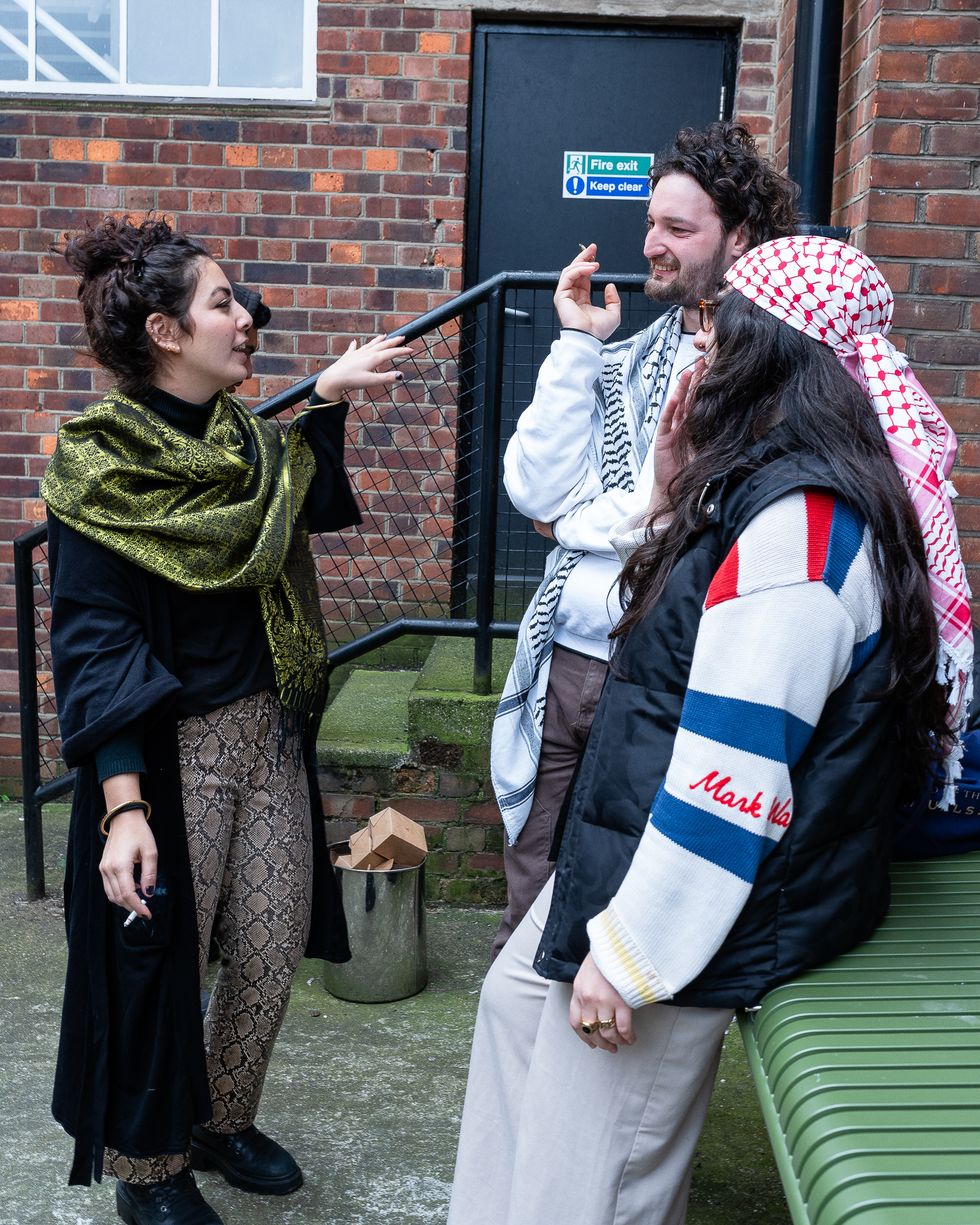
What do you want people to take away from 3EIB? What do you see for its future?
I want the SWANA community to feel proud of their origins and excited to rep their culture. That wasn’t the case for me growing up because I didn’t see myself reflected in my surroundings (school, curriculum, culture, media) so I whitewashed my identity in order to fit in. I’ve got a Gen Z sister, and in the nine months of 3EIB, I’ve seen how much it’s helped her feel proud of her roots. What she maybe doesn’t know is that her generation is a constant source of hope for me; they’re so much more politically engaged and aware, and I have no doubt that collective liberation will be achieved. Love you, Yasmina!
For non-SWANA audiences, we hope they gain a better understanding of us as diverse people and appreciate the cultural value we have to offer. We want to reprogram our relationship to consumption and remind people that what we put on our bodies is a political choice. It can serve as a visual manifesto, give voice to marginalized communities, advocate for social justice and challenge oppressive systems.
As for the future, we have a big announcement next month. Keep your eyes peeled!
Photography: Ceriena Khzouz
Related Articles Around the Web
MORE ON PAPER
ICONOS: Pepe Aguilar, El Oficio del Tiempo, la Voz del Silencio y el Peso del Legado
Español
Jan 19, 2026
ATF Story
Madison Beer, Her Way
Photography by Davis Bates / Story by Alaska Riley
Photography by Davis Bates / Story by Alaska Riley
16 January
Entertainment
Cynthia Erivo in Full Bloom
Photography by David LaChapelle / Story by Joan Summers / Styling by Jason Bolden / Makeup by Joanna Simkim / Nails by Shea Osei
Photography by David LaChapelle / Story by Joan Summers / Styling by Jason Bolden / Makeup by Joanna Simkim / Nails by Shea Osei
01 December
Entertainment
Rami Malek Is Certifiably Unserious
Story by Joan Summers / Photography by Adam Powell
Story by Joan Summers / Photography by Adam Powell
14 November
Music
Janelle Monáe, HalloQueen
Story by Ivan Guzman / Photography by Pol Kurucz/ Styling by Alexandra Mandelkorn/ Hair by Nikki Nelms/ Makeup by Sasha Glasser/ Nails by Juan Alvear/ Set design by Krystall Schott
Story by Ivan Guzman / Photography by Pol Kurucz/ Styling by Alexandra Mandelkorn/ Hair by Nikki Nelms/ Makeup by Sasha Glasser/ Nails by Juan Alvear/ Set design by Krystall Schott
27 October
Music
You Don’t Move Cardi B
Story by Erica Campbell / Photography by Jora Frantzis / Styling by Kollin Carter/ Hair by Tokyo Stylez/ Makeup by Erika LaPearl/ Nails by Coca Nguyen/ Set design by Allegra Peyton
Story by Erica Campbell / Photography by Jora Frantzis / Styling by Kollin Carter/ Hair by Tokyo Stylez/ Makeup by Erika LaPearl/ Nails by Coca Nguyen/ Set design by Allegra Peyton
14 October
